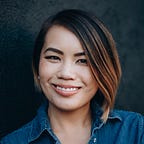#ILookLikeAUtahn
This article appears in the Fall 2017 issue of Silicon Slopes Magazine. For the print version, subscribe to Utah Business Magazine and you will automatically be sent a quarterly copy of Silicon Slopes Magazine.
Do you remember the #ILookLikeAnEngineer campaign that started in 2015? A company received backlash for featuring one of their woman engineers in a recruitment piece because accusers said that she didn’t look like an engineer. While I’m not an engineer, I’ve felt like I’ve experienced similar kinds of stereotyping as a woman of color here in Utah.
According to Pam Perlich, the director of demographic research at the University of Utah’s Kem C. Gardner Policy Institute, by the year 2050, the state of Utah’s minority population will grow from 20 to 30 percent (the U.S. and Salt Lake City’s minority populations reaching 60 percent during this same time period). As the color of our community changes, it’s important that we expand our view of what it means to be a Utahn and what a Utahn looks like.
Understanding what other people experience can be difficult so I want to share a few things from my life that paint a picture of what it’s like to be a Utah woman of color.
I’m Asian-American and I have spent most of my life living in places (Orange County, California and Utah) that are predominantly white.
Compared to what my Chinese-American grandmother experienced growing up in Utah during the Great Depression, the open and passive discrimination that I experience today as a Utahn is not as intense, but it’s definitely still not okay.
A few months ago, I set up an appointment with a local organization to tour a facility as part of research for a project I was working on with a colleague. When my colleague and I arrived for the tour with the facility director, I noticed that he was only making eye contact and talking to my colleague even though I was the one who had initially contacted him about the tour.
As the director wrapped up the tour, he handed his business card to my colleague. I stood there waiting for him to hand me a card as well, but I realized after an awkward moment standing there with empty hands, that it wasn’t going to happen. I felt invisible.
In my mind, I ran through the possibilities of why I was treated differently than my colleague. I don’t know the motivation behind the facility director’s differential treatment, but I did note that race was a big difference between my colleague and me. She is a majority and I am a minority.
Other awkward recent situations include a Lyft driver stereotyping me as an accounting student and a new acquaintance bowing to me after a friend introduced us.
No one likes to be ignored or treated differently than their peers. This kind of differential treatment is uncomfortable and unsettling.
Sometimes people ask me to educate them on how to act appropriately around people of color. At the core of any advice that I would give is to truly believe that people who are different from you deserve the same amount of respect as anyone else. It’s easy to relate to people who are similar to you, but perhaps the exercise to stretch and understand the worldview of someone who is different from you is the greater accomplishment.
Let’s check ourselves when we assume what someone is like based on their appearance. Let’s push our minds to discard stereotypes. Let’s treat people like people. Let’s expand our perception of who looks like a Utahn.
Even though it can be uncomfortable to be visibly different from my peers as a woman of color in the Utah entrepreneurship community, I stay here because I believe our Silicon Slopes people can learn, adapt, and change to become more inclusive and diverse. I hope that this belief is true.
